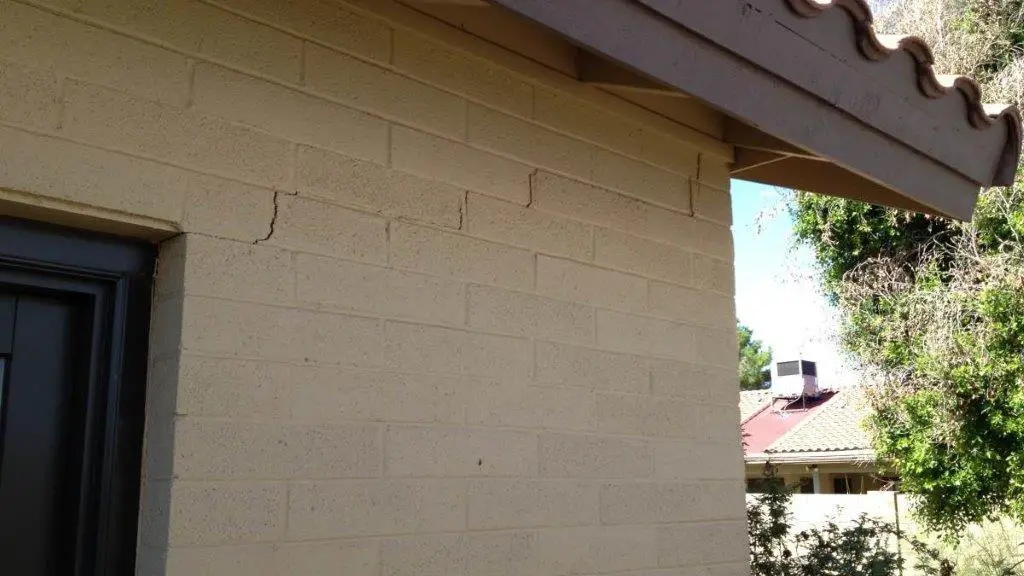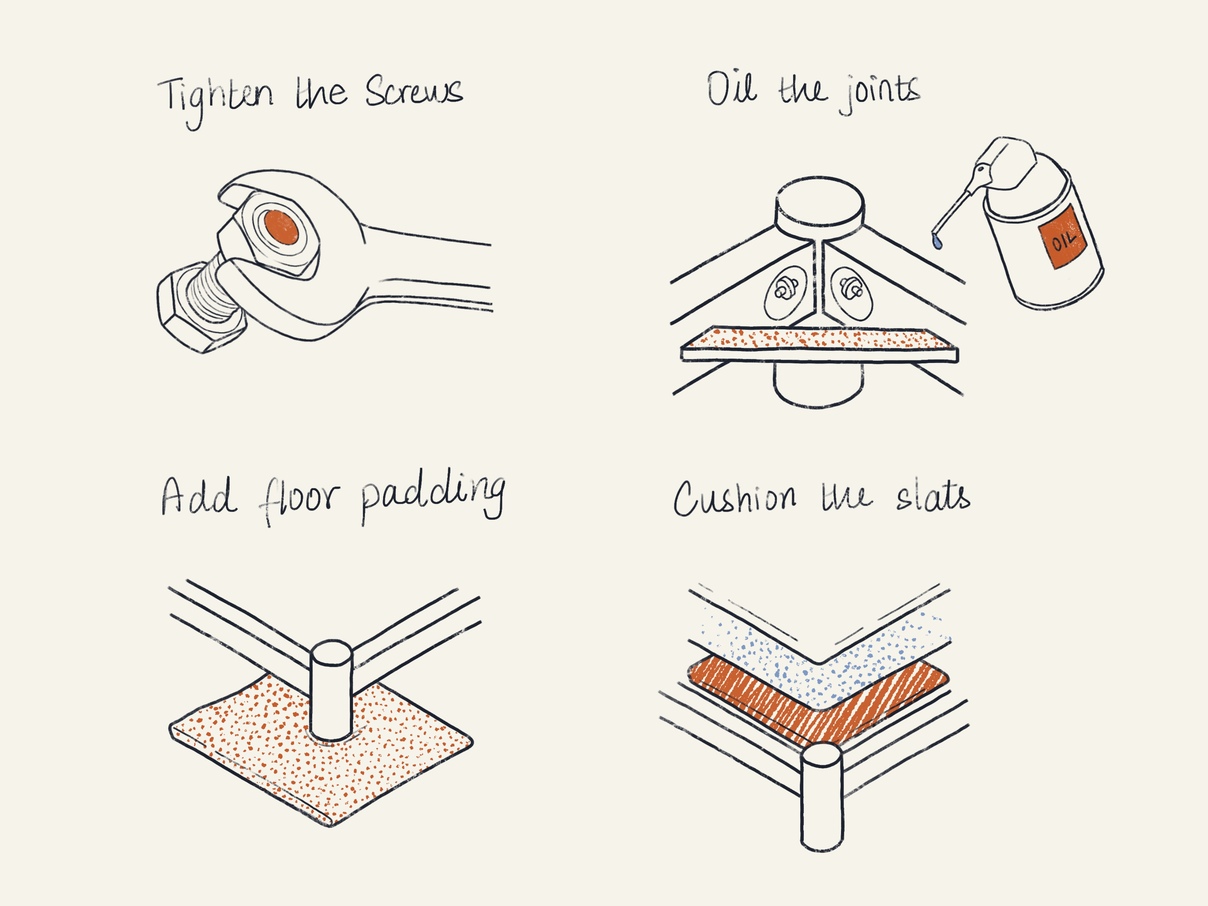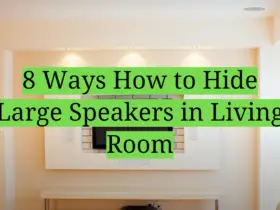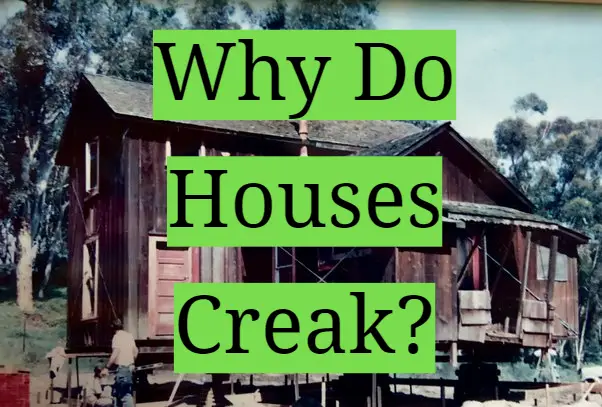Have you ever been lying in bed late at night, when suddenly you hear a loud creaking noise coming from somewhere inside your house? It can be an unsettling feeling, and it often leaves people wondering what could possibly be causing the sound. The truth is that there are many reasons why houses creak and groan – some of them perfectly normal and harmless, while others may indicate something more serious. In this article, we’ll explore some of the most common causes of house creaks to help put your mind at ease.
Thermal Expansion And Contraction
One of the most common causes of house creaking is thermal expansion and contraction. As temperatures outside rise and fall, so too do those inside your home – causing the walls, floors, and even the furniture to expand and contract accordingly. This can result in a wide range of noises as materials rub against each other due to changes in size, shape, and even moisture levels.
While this is usually nothing to worry about, it can indicate a problem if the creaking is particularly loud or appears to be caused by a particular area of your home. In this case, you may want to contact a professional for an inspection.
Weather
Houses creak when the weather changes. Temperature and humidity cause wood, which is often the main building material of a house, to expand and contract. This movement of expansion and contraction in wood causes it to rub against other materials like nails or screws, resulting in creaking sounds. Houses usually settle over time, but extreme changes in temperature and humidity can cause houses to creak even after many years.
The best way to reduce creaking due to weather is to keep your home at a constant temperature and maintain proper ventilation. This will help reduce the sudden shifts in temperature and humidity that can cause creaking.
Additionally, regularly inspecting the structure of the house for loose nails or screws and repairing any damage to the framing can reduce creaking. [1]
Temperature And Time Of Day
The temperature and time of day can also have an effect on why houses creak. When it’s cold outside, wooden objects such as support beams and joists in your home will contract due to the change in temperatures, which causes them to shrink. This puts tension on the nails or screws holding them in place, leading to a creaking sound. Similarly, when the warm weather of summer hits and the wood expands, it can give off similar creaking noises as it puts pressure on its fastenings.
The time of day can also cause houses to creak due to changes in temperature. As the sun rises each morning and temperatures increase, wooden objects expand and pull against their nails and screws, causing creaking noises. As the day progresses and temperatures lower, this tension is released, allowing the wood to contract again and reducing the chance of creaking sounds. So if you hear more creaks during certain parts of the day, it could be due to temperature changes throughout the day.
House Settling

Creaking noises in houses can be caused by settling and creep. House settling is the gradual shifting of a building’s foundation over time due to normal wear and tear or changes in the environment. This shift causes tension in the house’s structure, which can lead to creaking sounds when one part of the structure moves against another. House creep is a similar phenomenon, but it occurs when the house’s structure has been distorted due to changes in humidity or temperature over time.
This distortion can also cause creaking sounds as the building’s components move against one another. Both settling and creep are common phenomena that occur in older houses due to years of wear and tear.
However, they can also happen in newer buildings due to unforeseen environmental factors or construction flaws. [2]
Foundation Shifting
One of the most common causes of creaking in a house is foundation shifting. Foundation shifting occurs when soil beneath the foundation moves or shifts, which can cause stress and pressure on the home’s structure. This can be caused by a variety of reasons – tree roots expanding under the foundation, erosion of soft soils due to rain or flooding, or even an earthquake. Foundation shifting can cause the structure above it to move or shift, leading to creaking noises in the walls and floors of a home. It is important to note that if foundation shifting is causing creaking noises in your home, it is likely indicative of a deeper structural issue and should be addressed as soon as possible by a professional.
Cons Of The Fact That The House Creaks
Due to the fact that houses creak and groan, many homeowners feel frustrated or scared by noises that normally occur. If you live in an old home with creaking floors and walls, it can make it difficult to relax at night. Some of the common cons associated with a house creaking are:
- Fear – The creaking and groaning of an old home can be alarming for some people. If you don’t know the cause of the noise, it can seem as if something supernatural is happening. Fear of not knowing what is causing the noise may prevent some from feeling relaxed in their own home.
- Frustration – The sound of a creaking floor or wall can become bothersome for some people. It may be hard to concentrate when you are constantly hearing noises in your home.
- Safety Concerns – Some homeowners worry that creaking walls and floors could mean the structure is not stable enough to keep them safe. Especially if the creaks sound as though they are coming from the foundation or support beams.
Overall, many homeowners experience mixed emotions when it comes to their creaking house. It’s important to remember that although a creaky home can be annoying and sometimes scary, they are typically normal sounds caused by the home settling and adjusting to its environment.
If you are concerned about the safety of your home, it is best to hire a professional contractor for an assessment. [3]
Home Squeak Prevention Tips

No one likes the sound of a house creaking, so here are some tips on how to prevent it.
Check for loose floorboards and other wood fixtures in your home, like stairs or door frames. An easy way to do this is by tapping them with your foot or hand and listening for any hollow or cracking sounds. If you find any loose pieces, use screws or nails to secure them.
Make sure your home is well-ventilated, as excessive moisture can cause wood floors and frames to swell up and creak when walked on.
Inspect the foundations of your house for any shifting or settling problems that could be leading to creaky floors.
Check your attic and basement for any gaps or cracks that could be allowing cold air in, which can also cause wood to become dry and brittle, leading to creaking noises.
If you have carpeted floors, check for any rips or tears that are allowing wood planks to move around and create squeaky noises when walked on.
If all else fails, hire a professional service to inspect your home and identify the source of your creaky floors.[4]
FAQ
Why do houses creak more at night?
Houses creak more at night because the temperature and humidity levels can change drastically from day to night. As the air cools, it contracts, and as a result, wood shrinks slightly. This puts pressure on your house’s frame causing it to flex and move which results in those familiar creaks and groans associated with night time. This phenomenon is often referred to as “thermal settling” or “thermal contraction” and it can be especially noticeable in older homes with wooden frames.
Additionally, when the air becomes more humid at night, wood absorbs the moisture which can cause it to expand and contract further leading to even more creaking.
Why do houses make popping and cracking noises?
Houses creak and pop for a variety of reasons. The most common reason is simply age, as the building materials settle and shift over time. Wood settles in on itself, causing small cracks to form which can result in popping or cracking sounds. In addition, seasonal changes can cause materials to expand and contract, resulting in more movement and potentially more creaking noises. Poor construction can also lead to squeaky floors and walls, as the materials used may not be stable enough to handle the weight of your home.
Finally, pests and insects can cause damage that might manifest in popping or cracking sounds. If you notice any of these noises coming from your home, it’s important to investigate the cause and take appropriate action to fix it.
How do I stop my house from creaking?
The best way to stop your house from creaking is by reducing the amount of wear and tear on its structure. One way to do this is to make sure it’s properly insulated, as exposure to dampness can cause wood floors and walls to swell and contract, leading to a higher rate of wear over time.
Additionally, checking for loose floorboards and nails can help prevent squeaks from developing. If you find any loose boards, nail them back into place.
If your floor is particularly squeaky, using a lubricant such as WD-40 or furniture wax in the joints may help to reduce the noise. Other techniques include installing additional support beams or joists to strengthen weak areas of the floor, or adding additional layers of plywood between existing layers to give the floor more stability. In extreme cases, you may need to replace your floorboards altogether.
Should I worry about my house creaking?
No, creaking is usually nothing to worry about and is natural in older homes. While it may be alarming at first, creaking is most often caused by wood shrinking and expanding due to temperature or humidity changes. The shift causes wood beams and joists to rub against one another, creating the noise you hear. However, if you’re hearing unfamiliar creaks and frequent banging, it could be a sign of something more serious.
If the noise is originating from a certain spot and seems to come in cycles or gets louder over time, it’s possible that your home may have structural damage. In this case, it’s best to call an expert to inspect and address any underlying issues. Proper maintenance of your home can help to reduce creaking and other noises.
Why do I hear tapping on my walls at night?
It’s common for people to experience tapping or thumping noises coming from their walls, especially at night. There are several possible causes of this noise, some of which can be solved with a little bit of investigation and a professional inspection. One possible reason for the tapping is that your house may have settling issues.
Settling happens when the soil around your home shifts and causes your foundation to move. This movement can cause walls to creak, tap or thump as they adjust to their new position.
It’s important to have a professional inspect your house if you believe it is settling, as this can be a sign of serious structural damage. Another possible reason for tapping in your walls is animal activity. Small animals, such as rodents or birds, may be living in your walls and making noises to communicate with each other.
Do houses creak in cold weather?
It may come as a surprise, but cold weather is not the cause of creaking in houses. The most common reason why houses creak is due to changes in the wood frame of a house. This is especially true for older homes with wooden frames, as the wood can begin to dry out over time, causing it to shrink and expand with changes in temperature or humidity. This can cause the wooden frame to creak when it is shifted or bent. In addition, the nails and screws in the frame may loosen as it shrinks, causing them to rattle when disturbed.
What to do if you hear someone outside your house?
If you hear a loud creaking noise coming from outside your house, it could be an indication of a problem with the structure or foundation of your house. It’s important to inspect the exterior of your home, including around windows and doors, for any signs of damage or wear and tear. If you find any loose or damaged materials, contact a local contractor to have them repaired as soon as possible.
Additionally, if you have noticed any cracks in the walls or foundation of your house, it’s important to seek professional help.
How long does it take for a house to settle?
When a house is newly constructed, it often takes one to three years for the foundation and framing of the house to settle. During this time, the home may creak and crack as it adjusts to its new environment. As the house moves, so do its joints, which are the points at which two pieces of framing meet. When the frame moves, it creates friction, resulting in creaking sounds that can be especially noticeable when a home is empty or a person is walking around. The creaking can also be caused by the wood itself, as it dries and shrinks.
Is it normal for houses to pop at night?
Yes, it is normal for houses to make noises at night. This is due to a variety of reasons, such as shrinking and expanding wood, settling of the foundation and house structure, normal wear-and-tear on the building materials, animals or insects moving around in the walls or attic, and even changes in barometric pressure or temperature. Creaks and pops are usually nothing to worry about but if you have an old home and start hearing an unusual amount of creaking or popping, it may be a good idea to have it inspected by a professional.
Is the floor creaking, OK?
If you hear creaking coming from the floorboards or walls of your house, it can be alarming. It’s normal for a house to make noises, but it’s important to figure out if the creaking is just an annoyance or a sign of more serious structural damage. The most common cause of creaking in houses is normal seasonal expansion and contraction.
Is it normal for ceilings to creak?
Creaking ceilings are a common issue in many homes. It is typically caused by materials shifting and settling due to changes in temperature, humidity, or due to a structural issue, such as settling foundations. Most homeowners experience creaking and popping noises in their ceilings at some point during their time in the home. While these noises can be concerning, they are usually not a sign of a structural issue and can typically be resolved. To ensure the creaky ceiling is not a structural issue, it is advised that homeowners call out a qualified engineer to check the home.
Useful Video: Why does my house make cracking noises at night?
Conclusion
In conclusion, houses creak for a variety of reasons. Creaks can be caused by structural changes due to settling or weather, changes in humidity, or the use of aging materials. These creaks are usually harmless and more of a nuisance than anything else. However, in some cases they can indicate a problem related to the home’s foundation or structure, so it’s important to be aware of any strange noises coming from your home. If you are concerned, it’s best to consult a professional to assess the situation and determine any necessary repairs or solutions. With regular maintenance and inspections, you can help prevent expensive repairs down the road and safeguard your home’s structure.
References
- https://www.bairdfoundationrepair.com/why-do-houses-creak/#:~:text=The%20most%20common%20reason%20for,contract%2C%20resulting%20in%20ominous%20creaks.
- https://www.rencoroofing.com/why-do-houses-creak/
- https://www.hunker.com/13414931/popping-noise-in-walls-attic
- https://www.goodhousekeeping.com/home/renovation/tips/a31986/sounds-house-should-not-make/














Leave a Reply